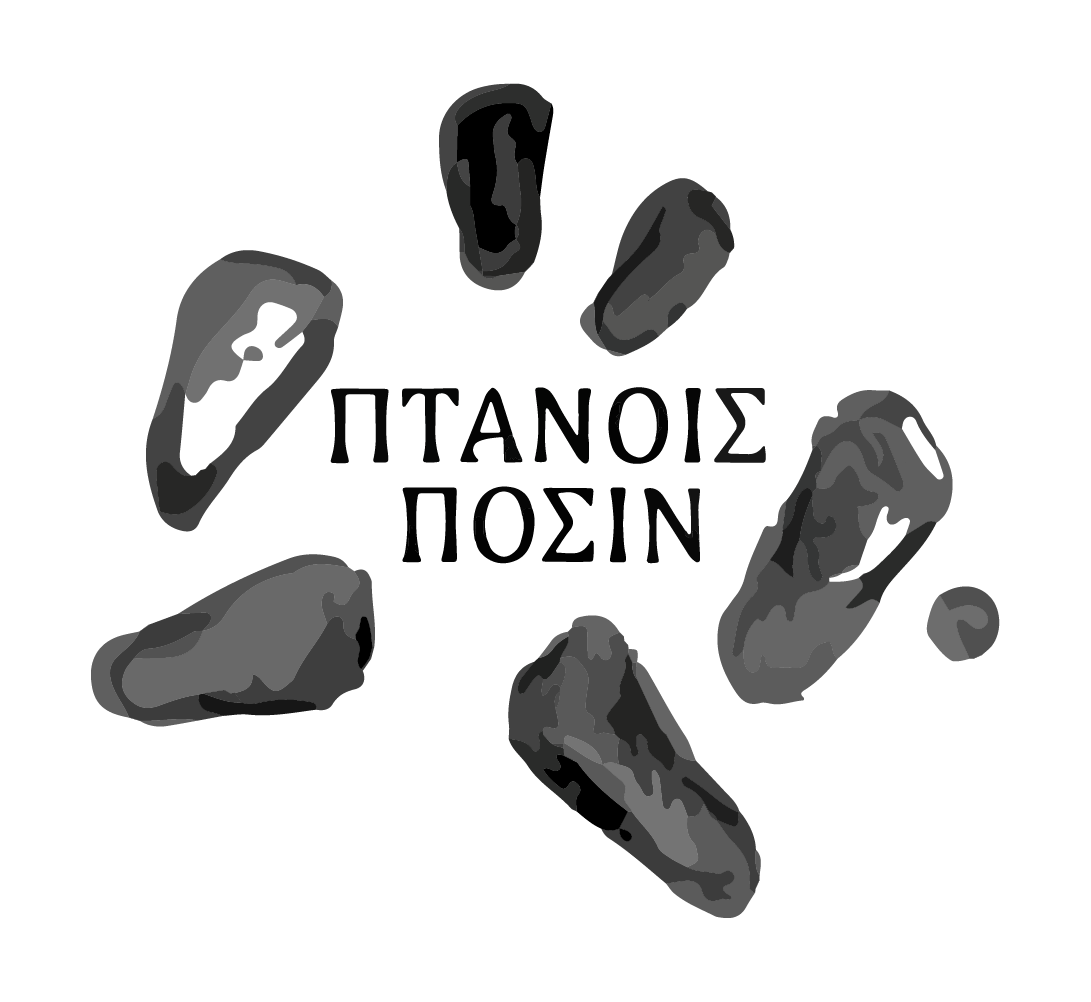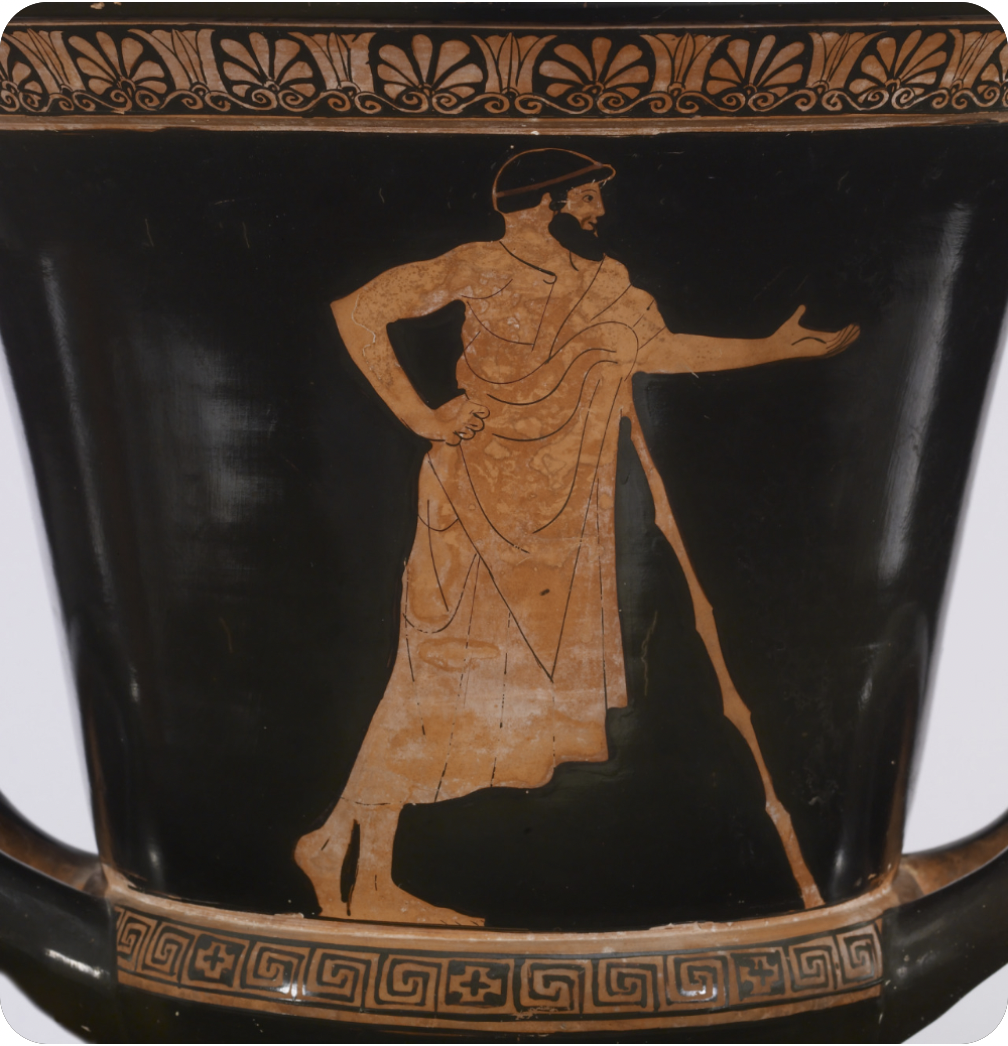FD III 2, 78
The Athenian Kleochares, the son of Bion: melic poet
Date:
230-225 BC
Edition:
[θ]εο[ί].
ἔδοξε τᾶι πόλει τῶν Δελφῶν ἐν ἀγορᾶι τελείω<ι>, σὺμ ψάφοις τ[αῖς ἐ]ννόμοις. ἐπειδὴ Κλε[οχ]άρης Βίωνο[ς]
Ἀθηναῖος, φυλῆς Ἀκαμαντίδος, δήμου Κικυν<ν>έως, ποιητὴς μελῶν, ἐπιδαμήσας εἰς τὰν πόλιν, γέγραφε τῶι θεῶι
ποθόδιόν τε καὶ παιᾶνα καὶ ὕμνον, ὅπως ἄιδωντι οἱ παῖδες τᾶι θυσίαι τῶν Θεοξενίων· ἀγαθᾶι τύχαι, δεδόχθαι
5 τᾶι πόλει τὸμ μὲν χοροδιδάσκαλον τὸν κατ’ ἐνιαυτὸν γινόμενον διδάσκειν τοὺς παῖδας τό τε ποθόδιον καὶ τὸμ παι-
ᾶνα καὶ τὸν ὕμνον, καὶ εἰσάγειν τοῖς Θεοξενίοις· ὅπως δὲ καὶ ἁ πόλις φαίνηται τιμῶσα τοὺς ἄξιόν τι τοῦ θεοῦ γράφοντας,
ἐπαινέσαι Κλεοχάρη Βίωνος Ἀθηναῖον ἐπί τε τᾶι ποτὶ τὸν θεὸν εὐσεβείαι καὶ ὅτι εὔνους ἐστὶ τᾶι πόλει. καὶ στεφανῶ
σαι αὐτὸν δάφνας στεφάνωι, καθὼς πάτριόν ἐστι Δελφοῖς· εἶμεν δὲ αὐτὸν καὶ πρόξενον τᾶς πόλιος, καὶ ὑπάρχειν
αὐτῶι καὶ ἐκγόνοις προμαντείαν, προεδρίαν, προδικίαν, ἀσυλίαν, ἀτέλειαν πάντων, καὶ τὰ ἄλλα ὅσα καὶ τοῖς ἄλ-
10 λοις προξένοις καὶ εὐεργέταις τᾶς πόλιος. ἄρχοντος Πατρώνδα, βουλευόντων Λύσωνος, Νικία, Δίωνος, Γνωσίλα,
Εὐθυδίκου.
Translations (en):
“Gods. It was resolved by the city of Delphi, in full assembly, with legitimate vote: since the Athenian Kleochares, the son of Bion, of the tribe of Akamantis and of the demos of Kikynnis, melic poet, having dwelt in the city, has composed a prosodion, a paian and a hymn for the god, so that the children may sing them for the sacrifice of the Theoxenia: good fortune, it has been resolved by the city that the chorodidaskalos elected annually, teaches the paian, the prosodion and the hymn to the children and conducts them to the Theoxenia. In order to show the city’s gratitude towards those who write poems worthy of the god, may the Athenian Kleochares, the son of Bion, be praised for his pietas towards the god and his benevolence towards the city and may he be crowned with a laurel crown, as it is customary of the city. He shall be proxenos of the city and he and his descendants shall have the priority in access to the oracle, privileged seating at the festivals, immunity for his goods and exemption from all taxes and all further privileges granted to the other proxenoi and benefactors of the city. Under the archonship of Patrondas; Lyson, Nikias, Dion, Gnosilas, Euthydikos were bouletai.
Translations (it):
“Dei. Sembrò bene alla città di Delfi in assemblea perfetta, con voto legittimo: poiché Kleochares ateniese figlio di Bion, della tribù Akamantis del demo di Kikynnis, poeta melico, avendo soggiornato in città, ha composto un prosodio, un peana ed un inno per il dio, affinchè i fanciulli li cantino per il sacrificio dei Theoxenia: alla buona fortuna, è sembrato bene alla città che il chorodidaskalos eletto annualmente insegni ai fanciulli il peana, il prosodio e l’inno, e li conduca ai Theoxenia. Affinchè poi la città dimostri di onorare coloro che scrivono componimenti degni del dio, si lodi Kleochares ateniese figlio di Bion per la sua pietas nei riguardi del dio e benevolenza verso la città e lo si incoroni con una corona d’alloro, come è patrio costume per i Delfi. Egli sia eletto prosseno della città e sia lui sia i suoi discendenti abbiano il diritto di precedenza nella consultazione dell’oracolo, la proedria, la precedenza in giudizio, l’immunità per i propri averi e l’esenzione dal pagamento di tutte le tasse e gli altri vantaggi quanti vengono accordati anche agli altri prosseni ed evergeti della città. Sotto l’arcontato di Patrondas, essendo buleuti Lyson, Nikias, Dion, Gnosilas, Euthydikos.”
Commentary (en):
The Delphian decree for Kleochares can be dated at the thirties of the third century BC. The crucial information in this decree resides in the motivation section, clearly explaining how Kleochares proved himself worthy in Delphi through his poetic endeavors. This Athenian poet wrote a composite set comprising a prosodion, a paian and a hymn for the god, so that could be sung at the Theoxenia by the children, rightfully instructed by the chorodidaskalos annually elected. The case of Kleochares shows that there were different layers of participation to the city life for foreign virtuosi: cf. Amphikles from Rhenea instructed himself the young chorus, while Kleochares entrusted his poetic set to the city chorodidaskalos.
Commentary (it):
Il decreto delfico per Kleochares risale all’incirca agli anni trenta del III sec. a.C., quando Patrondas esercitò l’arcontato. L’interesse di questo documento risiede nella sezione delle motivazioni, che spiega in maniera dettagliata come questo poeta ateniese si fosse reso meritevole presso Delfi. Kleochares compose un prosodio, un peana e un inno per il dio da far eseguire al coro dei fanciulli, istruito dal chorodidaskalos eletto annualmente, in occasione dei Theoxenia. Ricostruiamo altresì diversi livelli di interazione tra virtuosi stranieri e città ospite: Kleochares affidò i suoi componimenti al maestro del coro, invece Amphikles di Renea istruì egli stesso il coro dei fanciulli (ID 1497).




